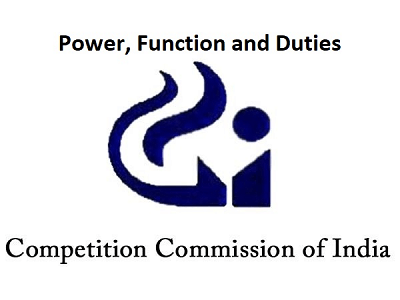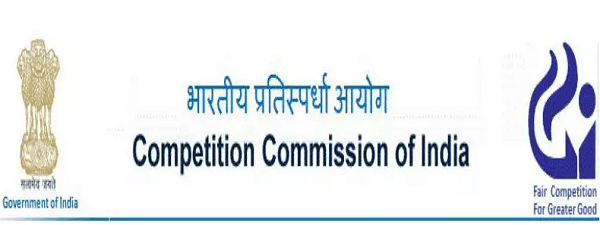What is the Full Form of CCI
CCI: Competition Commission of India
CCI stands for Competition Commission of India (CCI) is India's central public competition controller. It is a legal organization within the Service of Corporate Undertakings that is responsible for enforcing the Competition Act of 2002 to advance competition and prevent activities that substantially impact competition in India.

CCI also supports mixtures under the demonstration to ensure that two blending factors do not outperform the market. On October 14, 2003, the Commission was established. It proved valuable in May 2009, with Dhanendra Kumar as its most noteworthy director. The current Executive of the CCI is Ashok Kumar Gupta, appointed in 2018.
The Commission should carry out efforts to hurt competition, advance and support competition, protect customers' interests, and ensure the ability to trade business sectors in India. The Commission also intends to provide an opinion on competition concerns based on a reference from a legal power established under any rule, embrace competition support, raise public awareness, and provide competition training. The Commission is a quasi-legal entity that presents perspectives to legal professionals and also oversees different instances.
The Competition Act, 2002
Competition is a monetary struggle between at least two market participants to attract more customers to reach their business objectives. Furthermore, in its Report 'A Structure for the Plan and Execution of Competition Regulation and Strategy,' the World Bank and OECD broadly characterize competition as "a situation in a market where firms or vendors freely attempt to win the support of purchasers to achieve a specific business objective, for example, benefits, deals, or a piece of the pie." Market actors include domestic and international organizations, merchants, businesspeople, retailers, and wholesalers. They may employ cunning ways to eliminate their adversary. In any event, in light of a reasonable worry for a government support society and the economy, it was critical to advance a market operating with fair cutthroat outcomes on the lookout. As a result, the Competition Act of 2002 was passed.
Section II of the Competition Act 2002 contains important restrictions prohibiting serious abuses in the Indian economy. Section 3 of the Demonstration prohibits entering into antagonistic to cutthroat arrangements, while Section 4 prohibits a business sector participant from mismanaging its market dominance over other businesses. Segment 5 and Area 6 prohibit and regulate the combination of at least two elements by consolidation, combination, or securing that would or is likely to produce a calculable detrimental impact on competition within the relevant market. Furthermore, Section III of the Demonstration manages arrangements related to the foundation and piece of the Commission, choice of the board for the Administrator and different individuals, terms of office of the Executive, and so on. At the same time, Part IV explains the Commission's obligations, powers, and elements.
Functions of the Competition Commission of India
- It forbids any activities, methods, or agreements that have a no competition in an Indian market.
- It also limits and prevents the dominance of a single effort on the lookout and misuse of rehearses performed in combination.

- Its capability can be acquisitions, consolidations, combinations, and so on between enterprises that impact competition in the Indian market.
- It also energizes rivalry and deals with it properly.
- It also seeks to protect the interests and rights of purchasers.
- The Commission may also make a move or request into concerns outside the country related to unjustified market practices and is authorized to engage in any MoU or agreement with any unfamiliar office with prior approval from the public authority.
- Section 20 of the competition act also allows the Commission to inquire into any matter relating to the acquisition and identify the mixtures that may or may not harm competition.
Challenges of the Competition Commission of India
- The CCI has several challenges in carrying out the Competition Regulations. The obstacles might be both inside and outward. The CCI is finding it increasingly difficult to deal with the steady and continuous shift in how companies are adopted and the emerging antitrust concern.
- The resulting action plans are based on a computerized economy and web-based business. This becomes a challenge for the CCI as continuous competition regulations examine resources and turnovers.
- The CCI's seat count must be increased to torsions on competition matters more rapidly.
- Consideration of limits in competition and antitrust legislation, such as information availability, network implications, and so on, is critical to ensuring that competition policies are relevant in a computerized economy.
CCI Memberships of International Organizations
- International Competition Network (ICN): The International Competition Network (ICN) is a virtual international organization whose members are competition professionals worldwide. Crafted by ICN takes place in project-planned Working Gatherings, where participants collaborate, mostly through video chats, teleseminars, online classrooms, studios, and so on.
- BRICS Competition Authorities: BRICS is a grouping of five emerging economies: Brazil, Russia, India, China, and South Africa. The BRICS Competition Specialists work in tandem. On May 19, 2016, during the International Legitimate Discussion in St. Petersburg, Russia, BRICS competition specialists signed a Memorandum of Understanding.
- Organization for Economic Co-operation and Development (OECD): The Commission is a spectator in the OECD Competition Council. The Commission and its staff often attend meetings of the OECD Competition Council and the OECD Worldwide Competition Discussion to access globally defined methods in competition regulation and strategy. CCI has made standard written commitments to the strategy discussed at several roundtables during OECD gatherings/meetings.
Vision and Mission of Competitive on Commission of India
To create and support an empowered competition culture via commitment and implementation that will drive companies to be fair, aggressive, and creative; improve shopper government assistance; and support financial development.

- The Competition Commission of India aims to establish a robust competitive environment through the following:
- Proactive partnership with all partners, including customers, industry, government, and overseas locations.
- Being an information-enhanced organization with a high degree of capacity.
- Amazing talent, honesty, commitment, and astuteness in authorizing the nation.
- The Competition Commission is India's competition regulator and an antitrust watchdog for smaller businesses that can't compete with large corporations.
- CCI can advise groups that provide to India if it believes they are negatively harming competition in India's domestic market.
- The Competition Act assures no company abuses its dominant position in a market by restricting supply, manipulating purchase costs, or engaging in practices venting other competing enterprise access.
- An unknown firm seeking entry into India through procurement or consolidation should follow the country's competitive legislation.
- The gathering shall fall under the jurisdiction of the Competition Commission of India if its resources and turnover exceed a particular monetary value (CCI).
Why do We need Competition Laws?
- Maintain Free Enterprise: The Competition Regulations have been characterized as the Manga Carta of free enterprise. Competition is key to preserving financial opportunity and the free enterprise environment.
- Market Protection: These rules are necessary to protect the market from being harmed by disappointments and contortions. There is a continual risk of various participants turning hostile to cutthroat activities like cartels and abuse of dominating circumstances on the lookout, and so on. These activities can have a no production and customer government aid. As a result, there is a necessity for competition rules and CCI as a regulatory body that may lay out command over financial exercises.
- Advancement of Indigenous Exercises: During globalization mastery, there is a requirement for a compelling competition regulation and Commission that can guarantee the continued suitability of indigenous enterprises while additionally cautiously adjusting the attainment of the unfamiliar venture benefit and cutthroat market.
Conclusion
The Competition Commission of India plays a critical role in maintaining market trustworthiness by managing the players' demonstrations. The Competition Act of 2002 grants the Commission its powers.

The CCI, by controlling the market commission, protects the customers from a venture or endeavor that may involve their remaining in the market to either charge excessively for their items or make the clients need to purchase their items repeatedly. In the preceding case, the vehicle organizations collaborated to make their vehicles less repairable so that customers would abandon their older vehicles and purchase newer ones rather than repair their old ones. These actions are anti-shopper because they were trying to take advantage of their customers by not providing them with components and basic administrations to keep up with their automobiles. This case merely demonstrates how important the CCI is in maintaining market transparency.
|




 For Videos Join Our Youtube Channel: Join Now
For Videos Join Our Youtube Channel: Join Now









